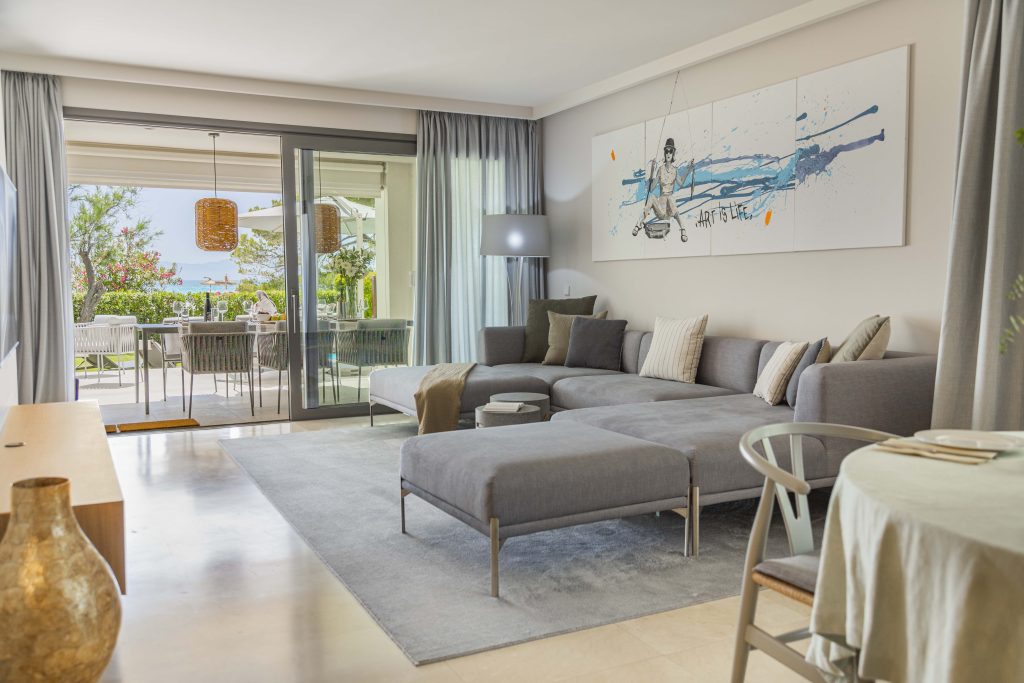Priced out of the housing market, but fancy owning part of a property? That’s what fintech is for

Millennials have long accepted that it’s going to take them much longer than their parents to save up for a home — let alone buy a new one. Enter a new crop of fintechs promising retail investors a piece of the real estate pie, without having to give up avocado toast! The catch – in most cases you still have to be rich to play.
Some eighteen shared ownerships have emerged in Europe over the past four years, and just this month Berlin-based Myne raised a €23.5m seed round while London-based Lilo raised €3m.
Just don’t call them timeshares.
The two models
Fractional ownership isn’t new: it’s had quite a few iterations in the analog real estate world for decades. From crowdsourced new-build properties to timeshares like your 70-year-old aunt’s best friend on the Costa del Sol, the model has been around since the 1960s.
It was only a matter of time before the concept was adopted by the fintech world, and as the cost of living bites the average household, VCs have been pouring serious money into startups that promise a slice of real estate luxury for those who still have cash to spare transl.
Startups with fractional ownership have been successful in the US, which the founders of these European copycats use as proof. For the average household, the idea of buying into a second home with soft towels and Aesop soap on tap may seem quite unrelatable. But the majority of these startups target the top 10% of revenue — which they’re confident will remain relatively unaffected by a potential recession.
“75% of people we surveyed wanted to invest in property, but only 15% actually do it – it’s too complicated”
So it’s not exactly fintech for the masses, but wealthy retail investors still have a clear appetite to put their money to work. As crypto crashes, and tech stocks tumble, this may just be stable old real estate’s time to shine.
They are divided into two schools. One is a little closer to the T-word (timeshare); they give investors solid ownership by purchasing a share of the assets. They usually target fairly wealthy investors who fancy a second home they can use for a month or more each year, and minimum investments start at around £100k.
The second school is aimed at a wider investor base, with minimum investments as little as £100. These properties include commercial projects and residential leases, but you can’t vacation there (yet).
So who does this in Europe?
Invest
Louve Invest
Paris-based Louve Invest raised €2 million in seed from investors including Kima Ventures and LocalGlobe last November for its real estate investment platform, where it connects investors with portfolios of commercial and residential properties owned by asset managers – who effectively act as brokers. .
Investors can log into their app and choose between different portfolios, filtering by asset class and geography, how much they have to invest and their risk profile. Although Louve is technically “open to all” for use, its user base is heavily skewed towards high-income earners. Louve does not finance the construction itself – these assets are ready to use and will generate rental income from the moment people invest.
Louve takes a standard commission fee of 6% from the managers of the property portfolios when they sell them to their investors. But it then gives investors 2.5% money back on their investments within 60 days.
Although it has a number of first-time investors using its platform to invest smaller amounts, the average ticket size is €10k – something co-founder and CEO Clement Renault says Sifted is being pushed up by quite a few investors betting €300k or more.
“When we did our research, we found that about 75% of the people we asked wanted to do property investment, but only about 15% actually do it – because it’s too complicated and they don’t want tenants to manage,” says Renault.
Although Louve only offers the option to invest in these properties at this stage, Renault says the company already offers some loan facilities and is looking at offering mortgages in 2023. Most of the properties on the platform are commercial, but it plans to offer more individualized properties. residential properties further down the line, and even matching tenants with investors.
Brx

Amsterdam-based Brxs takes a slightly different approach by only offering residential properties on its investment platform.
Investors can buy a share of one of Brxs’ properties – all of which are let to tenants – for as little as €100. Traditionally, this type of property was owned by family offices or banks – but Brxs’ mission is to open up real estate assets to everyone.
“We realized our generation [millennials] may not be able to buy a house until they are 40 or 50. You can buy fractions of art, crypto and stocks everywhere quite easily, but you cannot participate at the same level when it comes to real estate,” founder and Det says CEO Amrita Ramsaransing to Sifted.
Investors can select individual properties to invest in through the Brxs app, based on their look and feel. Brxs buys the properties directly, and unlike the crowdsourcing models that often promise properties that are under development, all the properties are built and ready to rent. So far, the average investment has been €700, and investors receive a quarterly payout from the property’s rental income commensurate with the size of the share they own.
Experience
Lilo

At the other end of the spectrum, London-based Lilo is preparing to launch the first properties on the platform it has created to offer “invest and experience” properties.
What does that mean in practice? Think Soho House runs a timeshare. It’s aimed at millennials with quite a bit of extra cash who may already be living in multiple locations – like European tech workers or wealthy creatives.
Lilo is building a portfolio of luxury properties across different locations, mainly focused on European cities where these young professionals may plan to split their time working remotely. Investors can buy an eighth share of a property to use it for 30 days a year – the typical industry ratio used to estimate how much a household uses a second home.
Each property is worth between £1m and £3m, so fractions work out from around £100k to £300k. Investors pay a “small maintenance fee” each month to property managers so that when they rock up to their timeshare property for a vacation, even their preferred brand of soap will be waiting for them.
“These are successful, ambitious people whose existing lifestyles we’re just complementing and enhancing,” co-founder Emily Chan tells Sifted. “They get to enjoy these beautiful luxury properties while benefiting from property value.”
Myne

Berlin-based Myne takes a slightly more traditional approach to the second home timeshare product, and has a portfolio of over 30 properties in popular holiday destinations such as the Alps, the Canary Islands, Mallorca and Ibiza.
Like Lilo, the target customers are wealthy: their average household income is more than €100k and minimum investments start at €50k. The properties have market values of between €750k and €3m and can be shared by up to eight people. Each joint owner’s share corresponds to 44 days of use a year, either for holiday use or rental income.
After the initial investment, co-owners also pay a monthly fee of €99 for the maintenance of the properties and for extras such as having the fridge stocked with their favorite wine.
Myne makes money by managing the condominium structure and property transactions, as well as the monthly maintenance fee and the commission it takes if one condominium owner wants to sell his shares to another.
All of this certainly falls under the luxury category, but Myne co-founders Nikolaus Thomale and Fabian Löhmer tell Sifted they’re not worried about the cost-of-living crisis affecting its punch.
“We think more people will be careful about costs and resources and therefore be even more willing to share things where it just makes a lot of sense from an economic, social and overhead point of view,” they tell Sifted.
Although they are currently focused on what they call the “financial and emotional return” of the shared second home model, further down the line Myne intends to focus more on the investment side of the offering, as well as financing solutions such as mortgages.
There are at least 14 other startups that have adopted versions of these two models in Europe, including Altacasa, investown and Vivla – read more about them in Sifted’s Pro briefing on fractionalization here.
Amy O’Brien is Sifted’s fintech reporter. She tweets from @Amy_EOBrien and writes our fintech newsletter — You can register here.
























